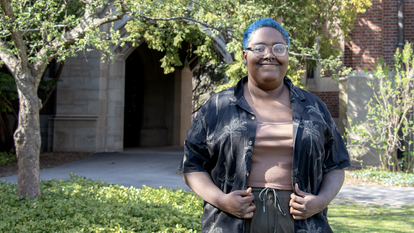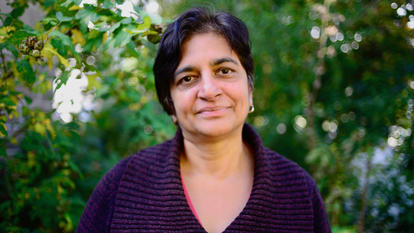Boston Globe Features Wellesley Professors’ Research on Gender Differences in Response to Negative Feedback

In a story featured in the Boston Globe Magazine’s 2018 “Women and Power” issue, Wellesley’s Olga Shurchkov, associate professor of economics and director of the Knapp Social Science Center, discussed the findings of a forthcoming study she co-authored with G. Kartini Shastry, associate professor of economics, and Lingjun “Lotus” Xia ’18 about how women and men respond differently when they are presented with negative information about their performance.
In the study, researchers gave two groups of male and female participants an online spatial reasoning test. After the test, they were asked to report how well they thought they had performed. Then one group received feedback about how their performance stacked up relative to the average. This outcome was the result of skill and luck. The second group did not receive feedback about their performance.
After both groups got their results, the participants were asked to choose whether they wanted money for the questions they’d answered correctly or whether they wanted to go on to challenge their peers in a tournament-style format for a bigger prize.
The findings indicated differences between men and women in the two groups. Without feedback, women of high ability entered the tournament, while women of low ability stayed out. Men, on the other hand, entered the tournament regardless of performance. Feedback corrected the inefficient tournament entry decision for men, but for women, feedback caused a distortion.
Women who actually had relatively high scores, but ended up receiving negative feedback mostly due to bad luck, opted out of the tournament, blaming themselves for the bad outcome. But women who received positive feedback about their relative standing, Shurchkov told the Globe, tended to attribute the result more to luck.
“Men basically enter the competition regardless of their ability,” Shurchkov told the Globe. “Men attribute unexpected bad news to bad luck, but women attributed unexpected bad news to ability.”
These gender differences have implications in high-stakes environments, particularly where performance reviews and academic grading are involved.
“I think that awareness is half the battle in this case,” Shurchkov told the Daily Shot. “I got a lot of women saying to me after the article came out, ‘Wow, this really rings true to how I react to criticism or bad news, but I never thought about it before.’”
She added, “I think once we realize that [women] take stuff so personally when it’s negative, and do not take credit fully for positive feedback, which hurts us in terms of persistence toward our goals, we can try to resist these feelings.”
Photo: Olga Shurchkov teaches her fall 2018 course ECON 324: Behavioral and Experimental Economics.



